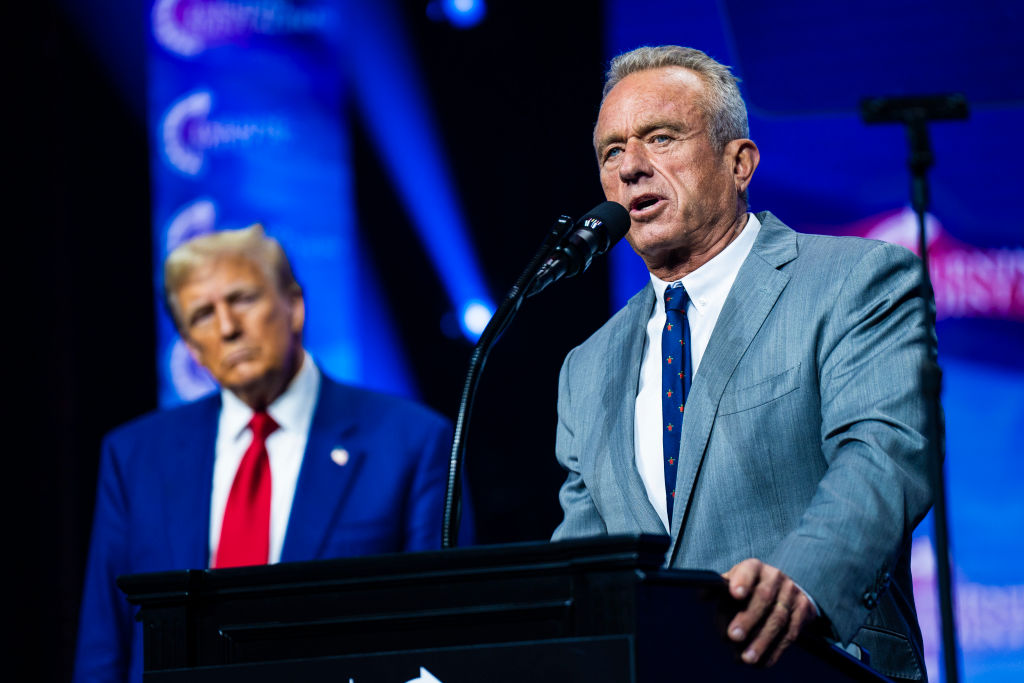Robert F. Kennedy Jr., President-elect Donald Trump’s pick to oversee the nation’s health system, worries the medical establishment for many reasons: his advocacy for raw milk, embrace of unproven supplements and, most of all, his rejection of vaccines.
Kennedy’s attacks on one vaccine in particular could specifically endanger women. The human papillomavirus, or HPV, vaccine has been demonstrated to prevent cervical cancer. Despite considerable evidence of the vaccine’s safety, Kennedy, who Trump said he will nominate to be secretary of the Department of Health and Human Services, has cast doubt and generated fear by highlighting claims of injury.
In January, researchers in Scotland showed that vaccinating girls against HPV completely prevented cervical cancer.
And just last week, researchers at the Medical University of South Carolina said they found a dramatic drop in cervical cancer deaths among women under the age of 25 in the United States since HPV vaccines became available 18 years ago. “We were looking at a very young age group and there was a huge drop… a 65% decline in six years,” said Ashish Deshmukh, an epidemiologist specializing in cancer prevention who helped lead the research.
The study, reported in a research letter to JAMA, formerly known as the Journal of the American Medical Association, was building on research that showed cancer-causing strains of HPV, an extremely common sexually transmitted infection, were becoming less common since HPV vaccines became available.
The new study found that, among the youngest women, mortality rates fell by 15% a year between 2013 and 2019. Between 1992 and 2021, 398 women under 25 died of cervical cancer, with a steady decline from the 50 to 60 deaths a year before 2000 to just 13 deaths in the two-year period ending in 2021.
Nonetheless, U.S. public health officials struggle to get enough girls and, now, boys vaccinated. In 2022, fewer than 39% of children and teens under 17 had been even partly vaccinated against the virus, which also can cause head and neck cancer and cancers of the anus and penis. Just three states and Washington, DC, require HPV vaccination to attend school.
Cervical cancer will be diagnosed in nearly 14,000 women this year and will kill more than 4,300, according to the American Cancer Society.
“Despite the enormous amount of evidence we have on the safety and effectiveness of the HPV vaccine, we have seen declines in HPV vaccination rates and increased concerns related to safety over the past few years,” Dr. Grace Ryan, an assistant professor specializing in cancer prevention and adolescent health at the University of Massachusetts Chan Medical School, said in a statement.
People of color are particularly hard hit. “In this country, cervical cancer has a disproportionate effect on lower-income people, particularly lower-income Black people,” said Usha Ranji, associate director for women’s health policy at the nonprofit health research organization KFF.
Kennedy, with the status and megaphone granted him by a cabinet position, will be able to further damage efforts to get more children vaccinated for HPV and other diseases. He has said he would order the National Institutes of Health to “take a break” from infectious diseases — which include HPV — to focus on chronic disease.
Kennedy’s spokesperson did not respond to a query about his plans for speaking about HPV vaccines.
A group Kennedy founded, Children’s Health Defense, falsely claims that childhood vaccines are still in the testing stage. They are not. Vaccines are not approved for use until they are fully tested. The group complains that children receive too many vaccines, but this has been proven untrue in multiple studies. The group also questions vaccine ingredients, and says dangerous or undesirable impurities linger in vaccines. But the Centers for Disease Control and Prevention and others make clear this is also untrue.
If Kennedy is approved by the Senate as HHS secretary, he will have a great deal of influence on the use of vaccines. Doctors are worried that he will heighten unfounded fears.
“Any pushback or any setback — we don’t want to see vaccination rates getting hampered,” said Deshmukh.
Trump and Kennedy have said they want to shake up the agencies that evaluate, approve and advise on all vaccines, including the HPV vaccine. In 2023, Kennedy cast doubt on the CDC’s guidelines for vaccinating kids.
“We are at a critical moment in time to build public vaccine confidence and combat the alarming amount of inaccurate information being spread to ensure all adolescents have access to the HPV vaccine,” said Ryan.
“With trust in our national public health institutions already at a low, it will be extremely important for the leader of HHS to be a champion in spreading scientific, evidence-based information and promoting HPV vaccine confidence,” Ryan added. “Further declines in HPV vaccination will result in preventable infections, cancer diagnoses, and deaths and we should be doing everything we can to stop this.”



